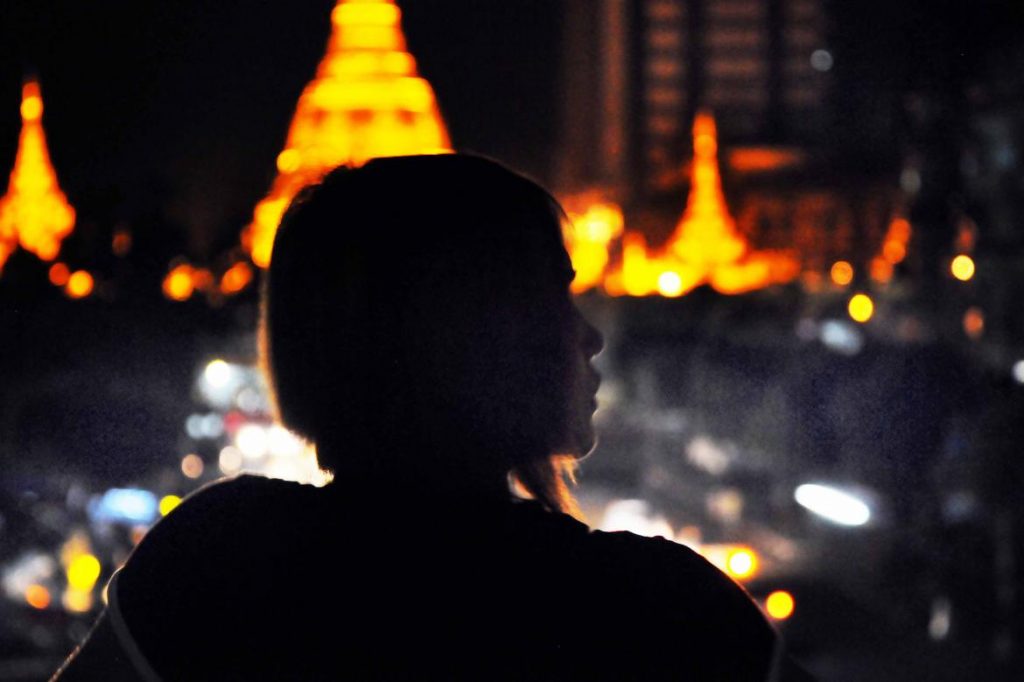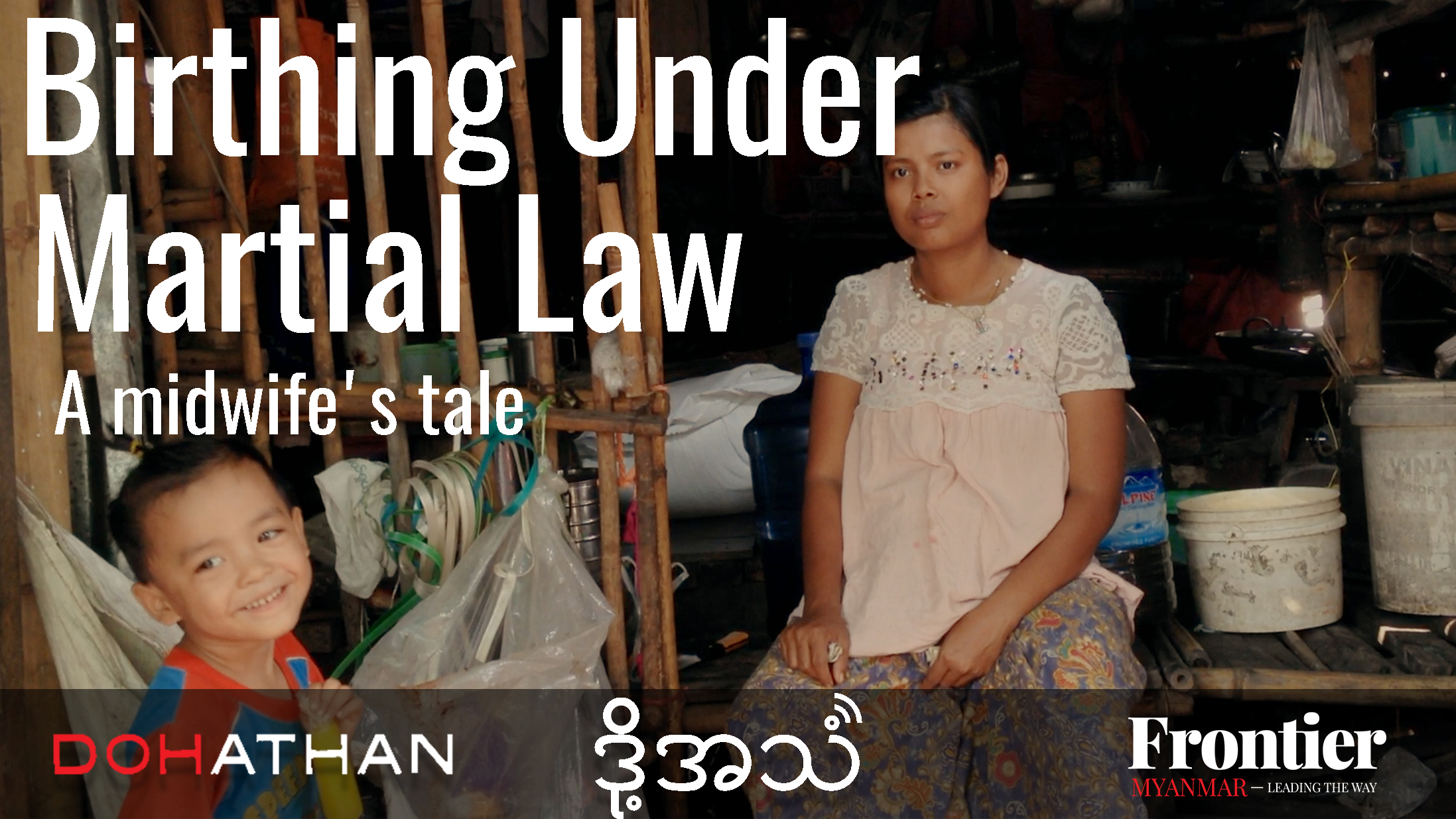Women in Myanmar can never be as loud, or have as much fun, or do things with the same degree of freedom as men.
By POE HAN THAR KYAW | FRONTIER
I’VE BEEN living in Jamaica for the past 14 years and recently ended a four-month visit to Myanmar, where I was born.
For the most part, I loved being back in my motherland. It was a chance to rediscover my roots, catch up with family I hadn’t seen for decades and, most importantly, gain an understanding of what Myanmar is about.
However, it was also a trying experience because of the unwritten code of conduct in Myanmar about how a woman should behave, which constantly clashed with the person I have become.
Because of the code, I feel more Jamaican than Myanmar in social settings.
Support more independent journalism like this. Sign up to be a Frontier member.
According to the unwritten code, women can never be as loud, or have as much fun, or do things with the same degree of freedom as men. For example, I was told that most women do not go out at night, because they just stay at home.
“Why?” I asked. “Is it their choice?”
I was told that it was socially unacceptable for women to go out at night and if I did I needed to be careful. “In Myanmar, if a woman goes out at night, it’s almost always assumed that she is ‘bad’ or promiscuous. So being out at night is not safe for you,” is the message I was given.
Of course, the unwritten code does not apply to all women in Myanmar, a country with a huge gap between rich and poor. For many women at the upper end of the income bracket, the culture to which I am referring does not exist. For the most part, they live the modern lifestyle of an independent woman. But most of the population is low-income and it is there that the majority opinion prevails.
It’s not that women can’t go out at night in Myanmar, as many obviously do, especially in big cities. I did during my visit and I certainly felt judged. Sometimes it is out of concern for your safety because you are a woman and therefore “at risk”, but the problem is that the vast majority of the population accepts that there should be a distinction between the lifestyle of a man and that of a woman.
I would love to have been born a man in Myanmar because it would mean little or no judgement about my independent choices, including going wherever I wanted.
I have been told point-blank that there was no need for boys living at home to learn anything more than washing the dishes. Why? Because after they move out of the family home, they will be entering the next stage of their lives as husbands. It’s a charmed life they will lead, one with built-in maids called wives.
I have seen wives buy everything they think their husband might need when out shopping in the off chance he might ask for a random product that’s not in the house. If they don’t have it, they’ll be “spoken to” — in other words, reprimanded.
I also know women who put out clean face towels and a toothbrush and toothpaste for their husbands every morning – just in case he loses his way in the house he’s been living in for half a decade, together with the ability to reach for what he needs himself.
Do I sound angry? I am and it’s about to continue.
I had a conversation about alcohol with a man who said he did not object to women drinking but that they should not drink as much as men. The only reason for this is that they are women. I have heard both men and women discuss sexual assaults with empathy before ending the conversation by saying something like, “That’s why girls should not go out at night”
I have heard a family member talk about how her 24-year-old daughter has never gone out at night, as if she’d won a prize. The message was that because she had managed to ensure her daughter only went out during the day, she must be a good mother.
I have heard another relative praise his girlfriend because she had only ever dated him and that he refused to go out with women who had dated other men, as if there was an inverse relationship between her value as a woman and the number of men she’d dated.
I am not saying that being a modern, independent woman involves dating many men, going out every night, drinking and going home with men. But it should be about choice.
A woman should be able to stay home and cook and knit just as comfortably as another woman should be able to wear a short dress, hang out in nightclubs and come home at 3am.
If you’re going to applaud your son for being able to wash dishes, you should applaud your daughter twice as enthusiastically for cooking without dismissing it as something she should know because she’s a woman.
Keeping your daughter in at night and telling her she is a better woman because of it is not teaching her the difference between right and wrong; it is denying her the right to experience life and make choices for herself.
If a woman has dated more than one man it doesn’t mean she is a bad woman or that she is somehow tainted; it means only that she has dated more than one man and nothing more.
I am not pushing a Western agenda on a different culture. I accept cultural differences, such as the importance of saving face or showing respect to nuns and monks; I am, after all, a product of both cultures.
But sexism isn’t a cultural difference. It is a hindrance to development, and the first step to any significant change is to acknowledge the need for such a change.
Myanmar is an amazing country with huge potential but it has been isolated from the world for many years. I can only hope that change in gender politics is embraced with the same level of enthusiasm as the recent, broader changes in the political arena.
Until then, woe is me for the misfortune of being born a woman.
This article first appeared on the author’s blog Meanmarshmallows and has been republished with permission.







